
Ever wish you could travel back in time to see ancient Rome? Thanks to Rome Reborn® you can!
- Subject:
- History
- Material Type:
- Lesson
- Provider:
- Khan Academy
- Provider Set:
- Smarthistory
- Author:
- Beth Harris
- Steven Zucker
- Date Added:
- 11/07/2012

Ever wish you could travel back in time to see ancient Rome? Thanks to Rome Reborn® you can!

Henry Wallis, Chatterton, 1856, oil on canvas, 622 x 933 cm (Tate Britain, London). Created by Beth Harris and Steven Zucker.
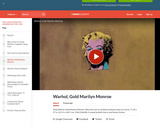
Andy Warhol, Gold Marilyn Monroe, Silkscreen ink on synthetic polymer paint on canvas, 71.25 x 57 in. (211.4 x 144.7 cm), 1962 (MoMA). Created by Beth Harris and Steven Zucker.

A Four-Cornered Hat, Wari (Huari) culture, c. 500–900 C.E., camelid fiber, 17.8 x 18.4 cm, 57.8 cm circumference, Bolivia or Peru (The Metropolitan Museum of Art) A conversation between Dr. Sarahh Scher and Dr. Steven Zucker. Created by Smarthistory.
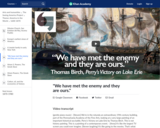
The battle that turned the War of 1812. Thomas Birch, Perry's Victory on Lake Erie, c. 1814, oil on canvas, 167.64 x 245.11 cm (Pennsylvania Academy of the Fine Arts), a Seeing America video speakers: Dr. Anna O. Marley, Curator of Historical American Art, Pennsylvania Academy of the Fine Arts and Dr. Steven Zucker. Created by Beth Harris and Steven Zucker. Find learning related resources here: https://smarthistory.org/seeing-america-2/

Wells Cathedral, Wells, England, begun c. 1175 Speakers: Dr. Steven Zucker and Dr. Beth Harris.

Red Star annotated photographs to restore dignity and context to government-issue photographs of Crow chiefs. Wendy Red Star, 1880 Crow Peace Delegation: Peelatchiwaaxpáash/Medicine Crow (Raven), Peelatchixaaliash/Old Crow (Raven), Déaxitchish/Pretty Eagle, Bia Eélisaash/Large Stomach Woman (Pregnant Woman) aka Two Belly, Alaxchiiaahush/Many War Achievements or Plenty Coups aka Chíilaphuchissaaleesh/Buffalo Bull Facing The Wind, 2014, 10 inkjet prints and red ink on paper, 16 15/16 x 11 15/16 inches (each) © Wendy Red Star (Portland Art Museum) Speakers: Wendy Red Star and Steven Zucker A Seeing America video Special thanks to Wendy Red Star and the Portland Art Museum. Created by Beth Harris and Steven Zucker. Find learning related resources here: https://smarthistory.org/seeing-america-2/
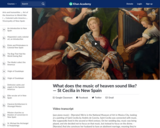
Andrés de Concha, St. Cecilia, 1590, oil on wood (Museo Nacional de Arte, Mexico City, Mexico) A conversation with Dr. Beth Harris and Dr. Lauren Kilroy-Ewbank.
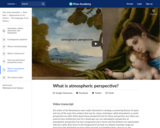
Speakers: Dr. Steven Zucker and Dr. Beth Harris. Created by Beth Harris and Steven Zucker.
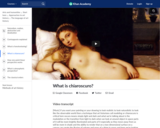
Speakers: Dr. Steven Zucker and Dr. Beth Harris. Created by Beth Harris and Steven Zucker.
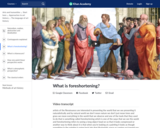
Speakers: Dr. Steven Zucker and Dr. Beth Harris. Created by Beth Harris and Steven Zucker.

Jaune Quick-To-See Smith's map can change minds. Jaune Quick-To-See Smith, State Names, 2000, oil, collage, and mixed media on canvas, 121.9 x 182.9 cm (Smithsonian American Art Museum) A conversation with Dr. Anne Showalter, Digital Interpretation Specialist, Smithsonian American Art Museum, and Dr. Beth Harris. This Seeing America video was made possible by a generous grant from the Terra Foundation and the Alice L. Walton Foundation. Created by Beth Harris and Steven Zucker. Find learning related resources here: https://smarthistory.org/seeing-america-2/

Special thanks to Susana Sosa, Rachel Barron Duncan, Nicole Gherry, Kim Richter, and Rachel Miller whose voices and insights are featured here. This video was made possible thanks to the Macaulay Family Foundation. Created by Smarthistory.
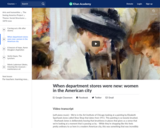
A new, modern culture of shopping and ready-made clothes were part of women’s new urban mobility. Elizabeth Sparhawk-Jones, The Shoe Shop, c. 1911, oil on canvas, 99.1 x 79.4 cm (Art Institute of Chicago). A conversation with Dr. Annelise Madsen, Gilda and Henry Buchbinder Assistant Curator of American Art, The Art Institute of Chicago and Dr. Beth Harris for Seeing America. Created by Beth Harris and Steven Zucker. Find learning related resources here: https://smarthistory.org/seeing-america-2/
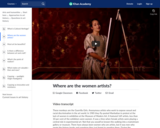
By calling attention to identity, sexuality, politics, and history, women artists have dominated the art debates for the last several decades. Despite this, only a small percentage of gallery collections and displays belong to women artists, even today. So how do we go about talking about women in art history? Learn more about the changing role of female artists in a male dominated art world over the centuries. Join Jemima Kirke as she guides us through a history of women in art, exploring the ways in which they have been represented, underrepresented, and sometimes misrepresented. Should there exist a separate Women’s Art History to tell this story, or is it simply a matter of inserting women into existing narratives? What about removing the label altogether, and referring to women artists as just artists? Would this ignore an important component of identity or recognise that women and men can be artists in equal measure? How can women artists be sufficiently recognised without distancing them from art history as we know it? Created by Tate.
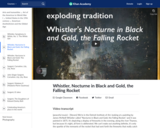
James Abbott McNeill Whistler, Nocturne in Black and Gold, the Falling Rocket, 1875, oil on panel, 60.3 × 46.7 cm (Detroit Institute of Arts) A conversation with Dr. Steven Zucker and Dr. Beth Harris. Created by Beth Harris, Smarthistory, and Steven Zucker.
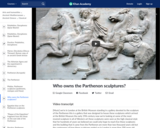
Phidias(?), Parthenon sculptures, frieze: 438-432 B.C.E., pediment: c. 438-432 B.C.E. and metopes: c. 447-32 B.C.E., an ARCHES video Speakers: Dr. Steven Zucker and Dr. Beth Harris.

Special thanks to Susana Sosa, Rachel Barron-Duncan, Derek Burdette, Kim Richter, and Rachel Miller whose voices and insights are featured here. Created by Beth Harris, Smarthistory, and Steven Zucker.
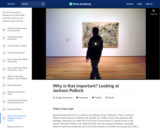
Why is that Important?: Looking at Jackson Pollock A conversation with Sal Khan, Steven Zucker and Beth Harris. Created by Beth Harris, Steven Zucker, and Sal Khan.

Steven Zucker and Sal Khan discuss Andy Warhol's Campbell's Soup Cans. Created by Beth Harris, Steven Zucker, and Sal Khan.